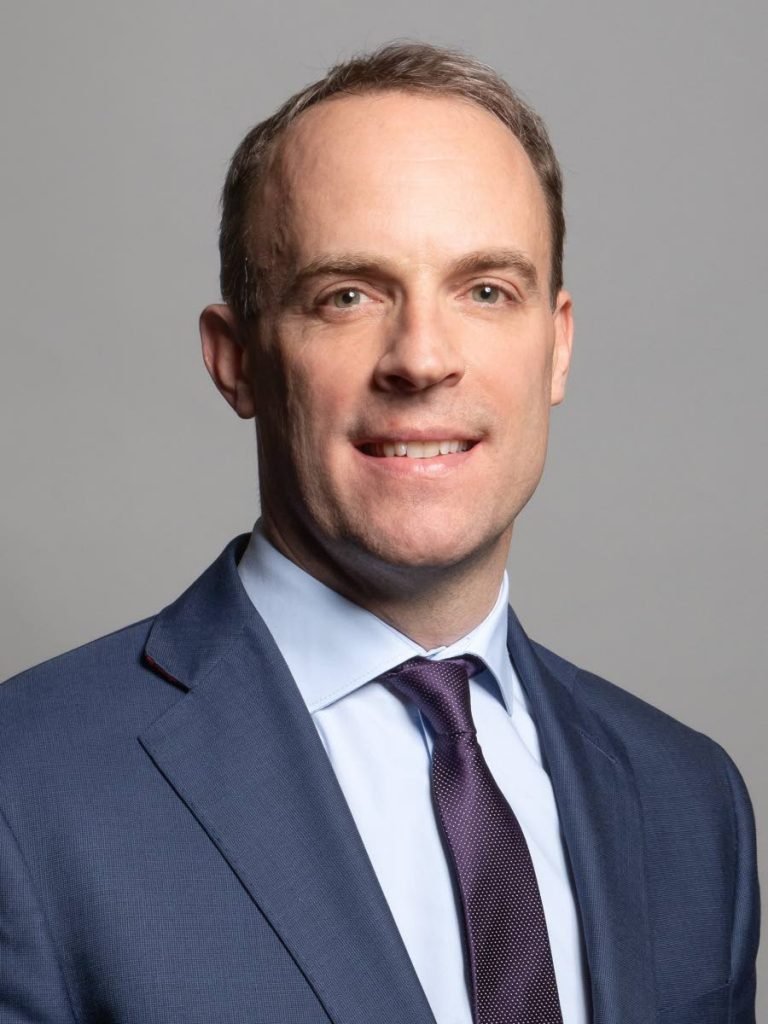Turning back dial on climate change

DOMINIC RAAB
ACROSS THE world people are increasingly facing extreme weather – from life-threatening flooding and droughts, to catastrophic wildfires. Climate change is an emergency happening now and it is being compounded by covid19 – with the impacts most severe in developing countries.
In the UK’s role as president of the UN Climate Change Conference (COP26), which we are hosting in Glasgow in November, we are working with impacted countries to put their voices at the centre of decision-making.
That’s why we hosted a Climate and Development Ministerial meeting on March 31 with many of the countries worst affected by climate change, including Trinidad and Tobago, bringing them together with donor countries and international organisations to discuss practical, real-world solutions. Now is the time for action – as the world prepares for COP26 and strives to fight the pandemic.
We now have a real opportunity to reshape our economies, ensuring they can withstand the effects of climate change and support sustainable jobs and growth. The scale of the opportunity is clear. By boosting investment in renewable energy, like wind and solar power, we have seen the number of jobs in the sector quadruple, from around ten million today to 42 million globally by 2050. Off-grid solar power alone supports over 350,000 jobs across East, West and Central Africa, and South Asia, with the potential to increase to 1.3 million in the next two years.
So the question that I have been putting to my counterparts in countries facing the worst of climate change is “what support do you need to recover and respond to climate change?” Their response is clear: more climate finance and easier access to it, help with rising debt levels caused by the economic consequences of covid19, and greater support to adapt to the effects of climate change.
In each of these areas, the UK is leading the response. We have committed £11.6 billion during the next five years in climate finance and, through our presidencies of COP26 and the G7, we are urging others to follow our lead. We are working closely with the G7, G20 and the sustainable creditor partners, the Paris Club, to agree an unprecedented response to alleviate the debt burden. The G20 scheme that we helped launch last year has suspended repayments from the most vulnerable countries worth $5.7 billion.
While we must focus on stopping further global warming, we must also act now to adapt to the impacts of climate change and address loss and damage. That is why, during the past decade, the UK has supported 66 million people around the world as they endure the damaging effects of the climate change emergency. In TT experts and institutions like Prof John Agard from the University of the West Indies are working with partners to collect data to better understand how nature-based solutions like mangroves can capture and store carbon to help tackle climate change and limit its impacts.
The Climate and Development Ministerial sent an urgent message to the world that action is needed now. If we are going to stop further catastrophic impacts for us all, we must limit temperature rise to 1.5 degrees – but that will only be possible if all nations come forward with ambitious plans.
So, when the world gathers in Glasgow in November, we must ensure that we are all doing what is needed to turn back the dial on climate change, lay the foundations for a green recovery, and secure a brighter future for us all. That is our urgent, shared mission – and the concerns of the most climate-vulnerable nations must be at its heart.
Dominic Raab is the Foreign Secretary of the UK


Comments
"Turning back dial on climate change"